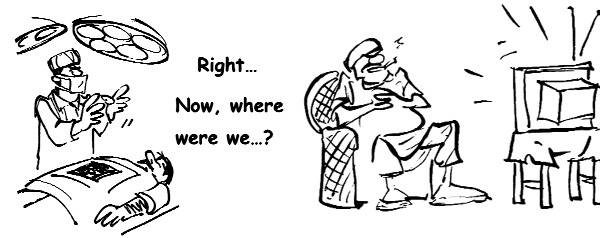
Burden of terrorism
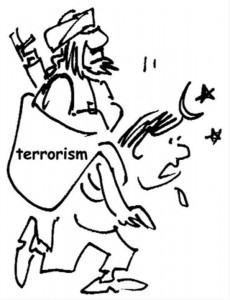
Sir,
The late Colonel Shuja Khanzada, Punjab’s Interior Minister, couldn’t have known what fate had in store for him on 16 August 2015. While addressing a meeting of local residents in his hometown near Attock – including people who had come to condole the death of his cousin – a brutal suicide attack left not only the minister, but also over 20 other innocent people dead.
Shuja Khanzada was a bold and honest man, and a dedicated officer. His genuine concern for his constituents had always been an example for others to emulate. The day he was killed, he was engaged in listening to people’s grievances and assuring them they had his full support. Khanzada would visit his hometown every week to meet the people of his constituency – something that other elected representatives in our country rarely bother to do. Moreover, he actively supported the crackdown on militancy in Punjab, which is perhaps one of the reasons he was targeted in this ruthless attack.
Pakistan has paid a heavy price in its war against terrorism. We have already lost thousands of innocent men, women and children even as the armed forces bravely fight a difficult war against militants in North Waziristan. The time has come to gear up these efforts: it is imperative that we root out the scourge of militancy once and for all. This is all the more essential if we are to contain the massive toll that terrorism has already taken and also if we want to see Pakistan back on the path to economic development and prosperity.
M. Fazal Elahi,
Islamabad.
Hark, Senator!
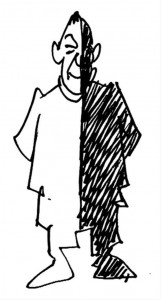
Sir,
This is with reference to a recent case in the Supreme Court of Pakistan and the role of a prominent senator who chose to defend a controversial land mafia don with a history of occupying state and private land in connivance with a corrupt administration and law enforcement agencies. Holding any constitutional office brings with it the responsibility to act in a manner that dignifies the post. Such democratic norms and ethics are pre-established – they don’t need to be reinvented, but they do need to be followed to the letter. Moreover, there must be a balance between corporate business interests and responsibilities.
One must choose between the gains involved in defending criminals in the professional capacity of a lawyer and the desire to hold public office, whether paid or honorary. Otherwise, this is tantamount to prostituting the noble profession of advocate while simultaneously holding public office. When elected, the senator in question presumably swore to uphold the Constitution and the rule of law. If he must succumb to temptation and greed, then he should at least have the decency to resign from the Senate.
G. Zaman,
Peshawar.
Ties with Iran
Sir,
There are neither permanent friends nor permanent enemies in foreign policy. With international sanctions being lifted against Iran, it would be wise to initiate a new trade partnership with the country. Iran is, after all, an immediate neighbour and we should welcome the emerging opportunity. There is immense potential for cooperation in power – particularly gas – production and distribution. Apart from strengthening economic relations, increased cooperation would go a long way towards resolving sectarian issues. The two countries should also exchange educational, social and cultural missions. Strategically, closer ties would benefit the cause of peace in the entire region.
The Government of Pakistan’s strong relations with the Saudi royal family may, however, prove to be a hurdle in building better ties with Iran. But this is the time to take action that is in our best interests – in this case, establishing mutual economic and political ties with Iran.
Muhammad Waqas Haral,
Chiniot.
Rewriting history
Sir,
This year, Defence Day is being celebrated as the golden jubilee of the September 1965 war against India. The occasion marks the sacrifices and acts of valour of our jawans and officers, many of who gave their lives in defending the country, while others left a legacy for their compatriots to follow.
India, on the other hand, claims that it emerged the victor in the 1965 war; it has successfully projected this perception through its highly effective media. For our part, the Pakistani media appears to lack both knowledge and cohesion on the subject. We need to understand the circumstances under which this war occurred, the events that ensued and how the entire nation united behind its armed forces and defeated the enemy on many fronts. The point is, if India had won the war (as it claims), why then did it rush to seek the UN’s help to appeal for a ceasefire?
We need to rewrite our military history based on eyewitness accounts in order to counter the Indian media onslaught and to explain to the public why, despite three wars, the issue of Kashmir has not been resolved.
Summiya Arif,
Rawalpindi.
Tax the traders

Sir,
Media reports indicate that various sectors of the business community are resisting attempts to impose a withholding tax on banking transactions that exceed PRs 50,000 (for non-filers). In the past, every time the government has tried to widen the tax net for the purpose of collecting larger revenues in order to balance the fiscal budget, it has faced controversy and resistance. This is happening yet again and the matter has not been resolved despite meetings between the trader community and the finance minister.
Why must we resist paying taxes? I believe the key reason people avoid paying taxes in Pakistan is that the ruling classes do not pay their due share to the exchequer. For example, the majority of politicians sitting in Pakistan’s national and provincial assemblies belong to rural constituencies and their agricultural income is exempted from income tax. If you claim to rule the country and pay no income tax yourself, you cannot make a strong case for asking the public to pay more taxes. It is embarrassing to think that Pakistan has just around a million income tax filers out of a total estimated population of around 200 million – and thus boasts one of the lowest tax-to-GDP ratios in the world. Our rulers must set an example by paying their due share of taxes. Once that happens, people will have more incentive to follow suit.
Ejaz Ahmad Magoon,
Islamabad.
Future of GB

Sir,
The 14 August issue of The Friday Times included an interesting review of the history of India’s princely states. Before Partition in 1947, there were 562 princely or “native” states, which did not constitute part of British India; although not conquered or annexed by the British, they were subject to subsidiary alliances. States such as Jammu and Kashmir (present-day Indian Kashmir and Azad Kashmir in Pakistan), Gilgit (including Hunza and Nagar in Pakistan), Balochistan, Bahawalpur, Kalat, Hyderabad Deccan, Gwalior, Madras, Rajputana and Baroda enjoyed independent status during British-Indian rule.
As a minor principality, Hunza was similar to Kalat in some respects, though not all. The former was an absolute monarchy while the latter was ruled by a confederation of tribal leaders and smaller feudatory units controlled by khans as fiefdoms. Both had few links with the British government. The Khan of Kalat remained at the centre of the power structure. Kalat lagged behind in education and economic progress compared to princely states such as Bahawalpur and Khairpur. However, the growth of political awareness in Kalat among some sections of society – following better access to education – meant that Baloch nationalism evolved gradually. Many people voiced their preference for independence rather than for joining Pakistan. The Khan of Kalat remained reluctant to join Pakistan despite Mr Jinnah’s efforts to persuade him. When Kharan and Lasbela acceded to Pakistan, the Khan saw himself being further marginalized and signed the Accession Bill.
The same scenario prevailed in Hunza where the Mir had kept the majority of the population in the dark. Contiguous to Pakistan, the Hunza and Nagar area were effectively annexed in 1974, given the administrative circumstances. The irony is that Mir Ghazanfar Ali Khan and his wife are still political representatives for the same population in the Gilgit-Baltistan (GB) legislative house – a new government with old faces. Under the proposed UN plebiscite, which is long overdue, a referendum should be held to determine the connection between GB and AJK, if any. One does not expect Pakistan to renege on its promise to grant political, judicial, economic and cultural autonomy to GB.
Laila Jabeen Gojali,
Gilgit.
Doctors or criminals?
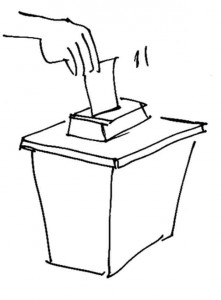
Sir,
This refers to the recent news (11 August) that the Lahore Consumer Court ordered a doctor found guilty of medical negligence to pay damages to a man whose newborn daughter he had treated in 2007 and left with liver damage. This was a landmark and long-awaited decision. Sadly, it is normal practice in Pakistan for doctors – who are supposed to save human lives – to simply disregard the value of human life itself.
Two years ago, my wife had to undergo a DCR intubation at one of the oldest hospitals in Lahore; the procedure was carried out by a noted professor of ophthalmology. After the surgery, her eye, which had been ostensibly treated, continued to cause severe discomfort. At every follow-up visit, we complained to the doctor that her condition had not improved; rather, it had become worse. On every occasion, we were told that the eye would improve over time. The doctor even gave us medical permission to proceed with our plans for Haj. Throughout out visit, my wife continued to suffer pain and discharge in her eye.
On our return, we decided to consult another eye specialist. To our shock, we were told that the required tube had not been inserted. Once again, we visited the original doctor, presented the second doctor’s report and asked him why the tube had not been inserted. He asked us casually, “Who told you the tube had been inserted?” We showed him the discharge slip issued by the hospital, which clearly stated the procedure carried out and which the doctor in question had signed. At this, he simply took the discharge certificate from us and cut out the words mentioning the insertion of the tube. Finally, my wife had to undergo the same surgery, but this time at an army hospital in Rawalpindi. The second operation was riskier, given the condition of her eye.
Such incidents of negligence and professional incompetence are common among the medical community here. Unfortunately, there is no system in place to penalise such doctors.
Aamir Aqil,
Lahore.
Media priorities
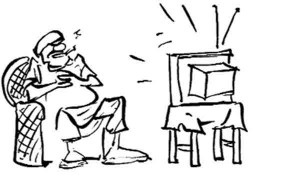
Sir,
It is appalling to see how the electronic media prioritizes shallow but sensationalist news over important issues or values merely to raise their ratings. A recent example is the hype created by media houses over Ayaan Ali – the model convicted of money laundering who was then released on bail after a few months spent in jail and was recently invited to speak at Karachi University. Although the news bulletin started off with reports on recent political developments, the bulk of the “news” hour was devoted to Ayaan Ali’s visit to the university, the hundreds of selfies her fans enjoyed taking with her and annoying songs aired in the background to underscore the model’s antics.
This occurred on 20 August – a day we should all have remembered for a different reason. It was this day that the brave PAF pilot Rashid Minhas (then merely twenty years old) sacrificed his life during the war of 1971. Minhas’s plane was hijacked by his flight instructor; on realising the latter’s aims, Minhas “forced the aircraft to crash”, as the military citation for his Nishan-e-Haider award states, in order to prevent it from falling under Indian control. It was this news of exemplary valour that our media houses should have aired instead of focusing on the trials and tribulations of a diva. The sequence of news reports is usually indicative of a channel’s priorities. If a report on a national hero such as Rashid Minhas is relegated to the end of the news bulletin simply because a model’s eccentric adventures are deemed worthy of more time and space, then there is not much left to say on the role that media houses supposedly want to play in reforming society.
Marria Qibtia Sikandar Nagra,
Lahore.

